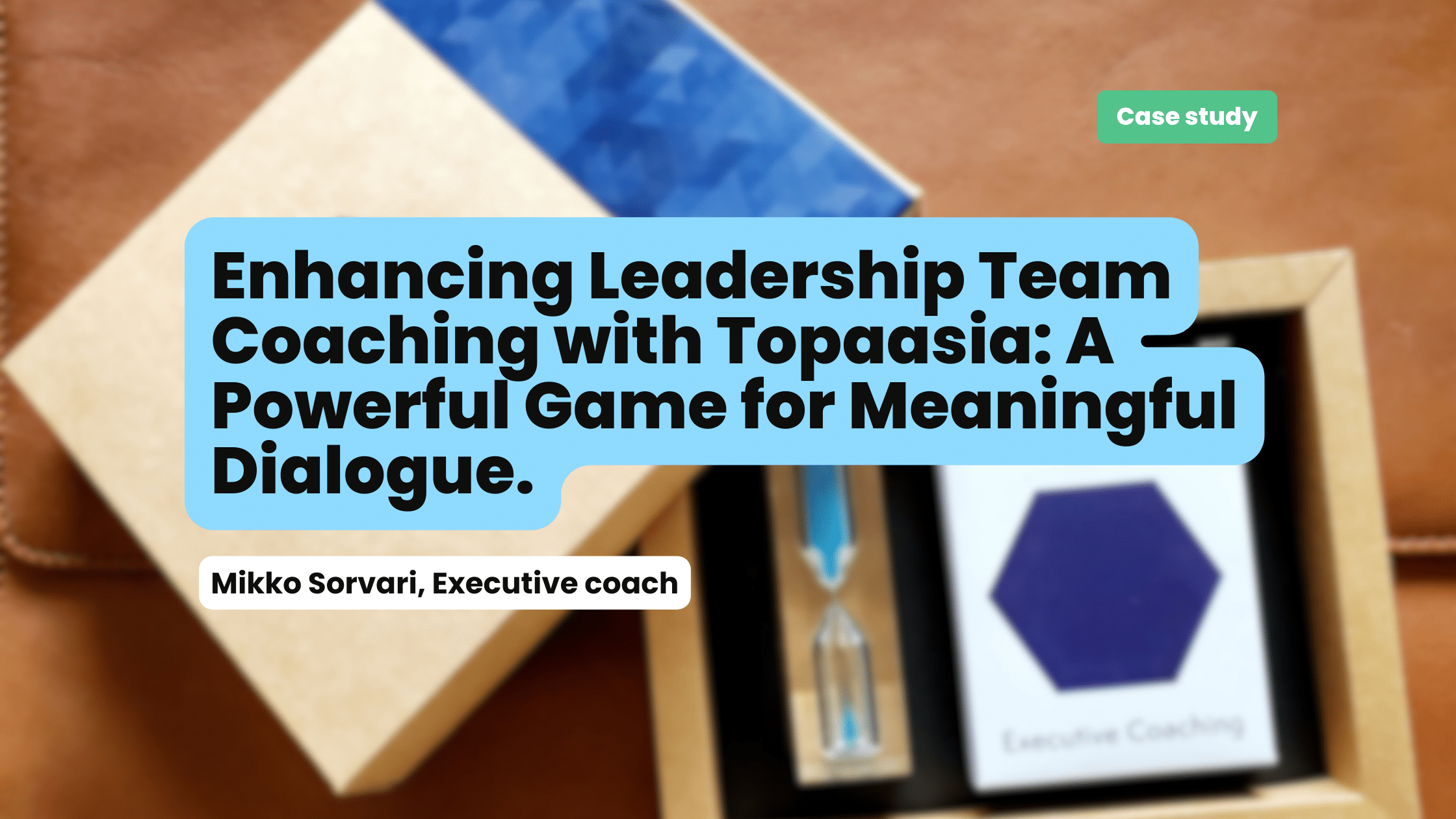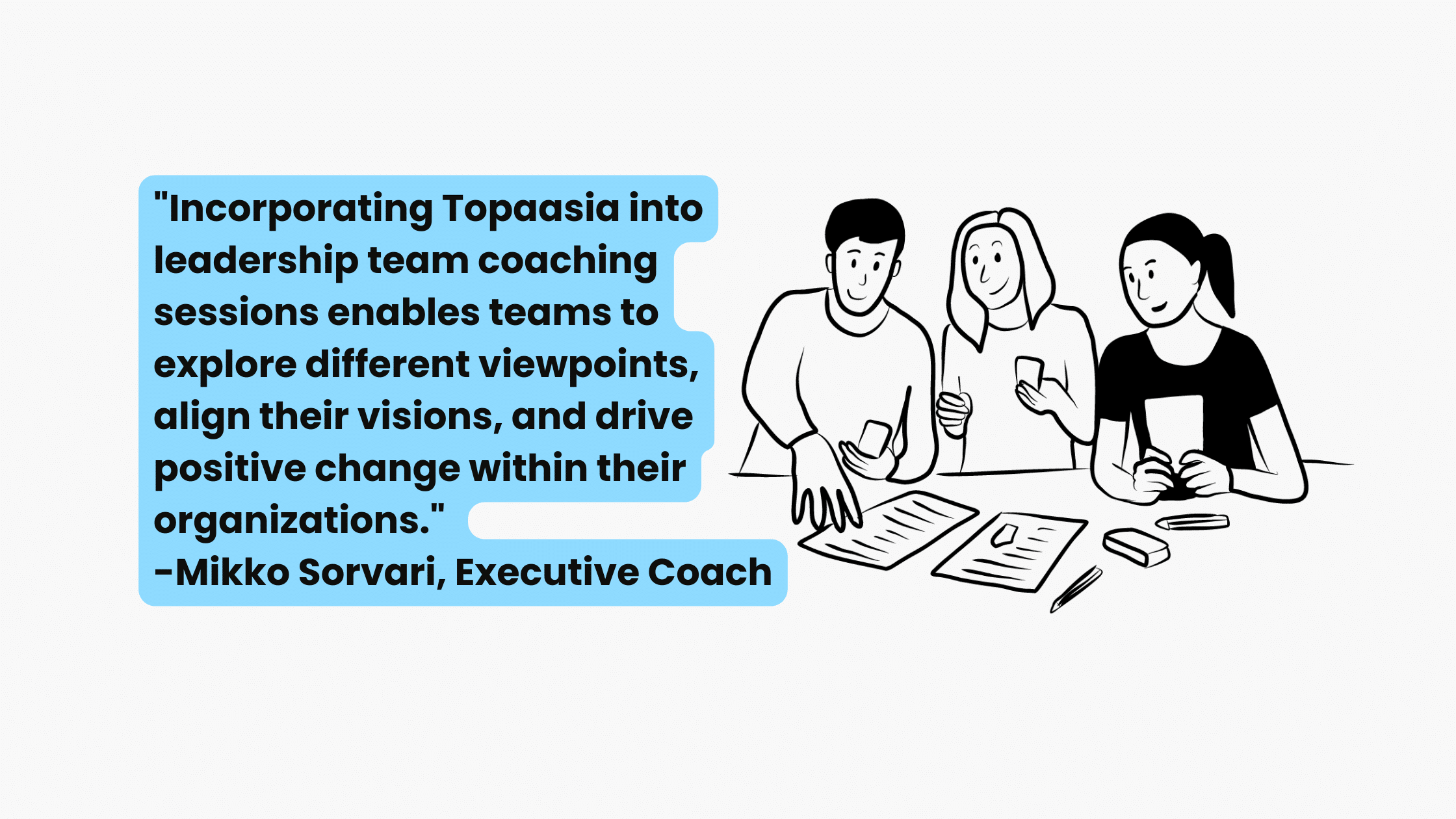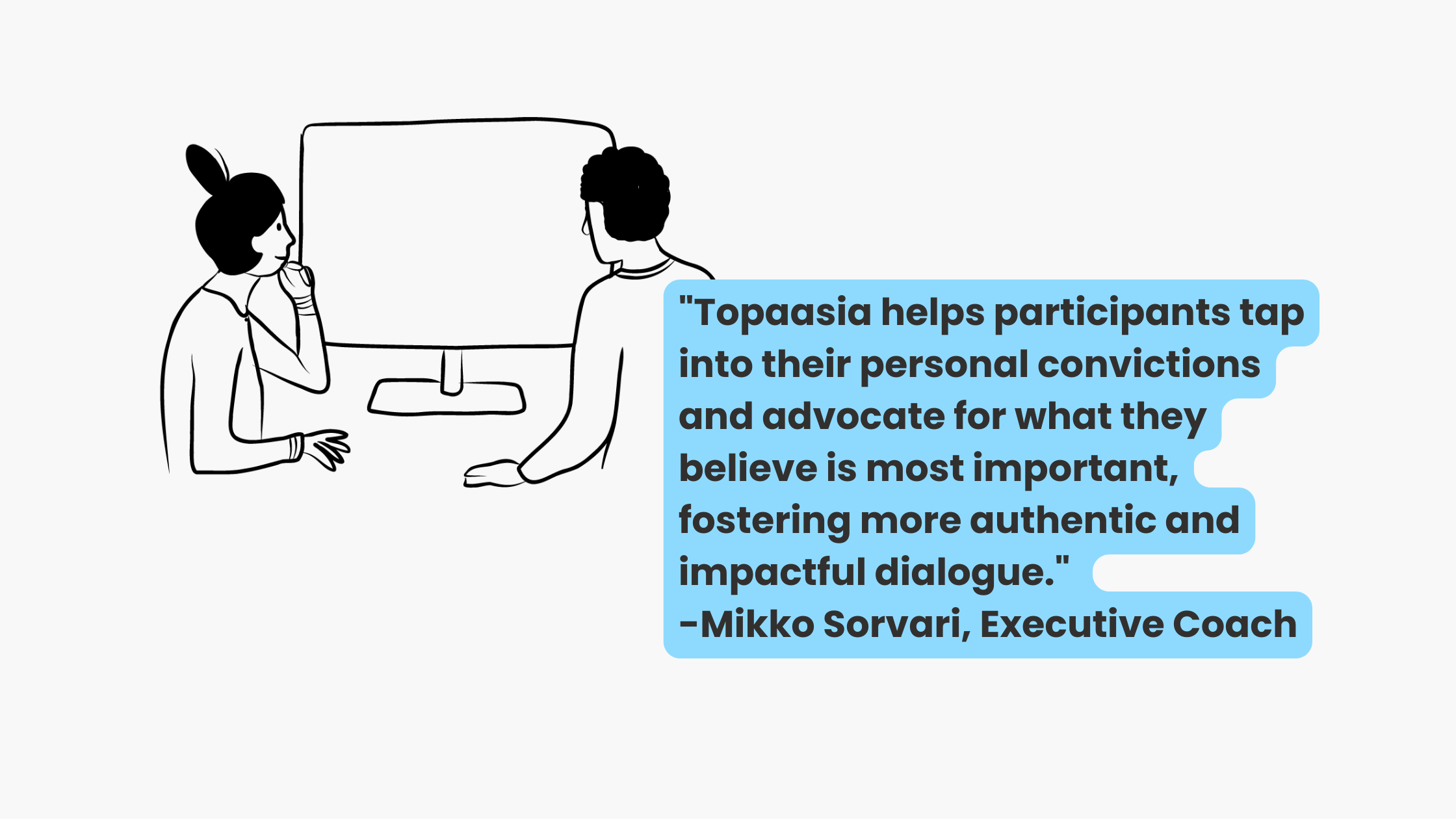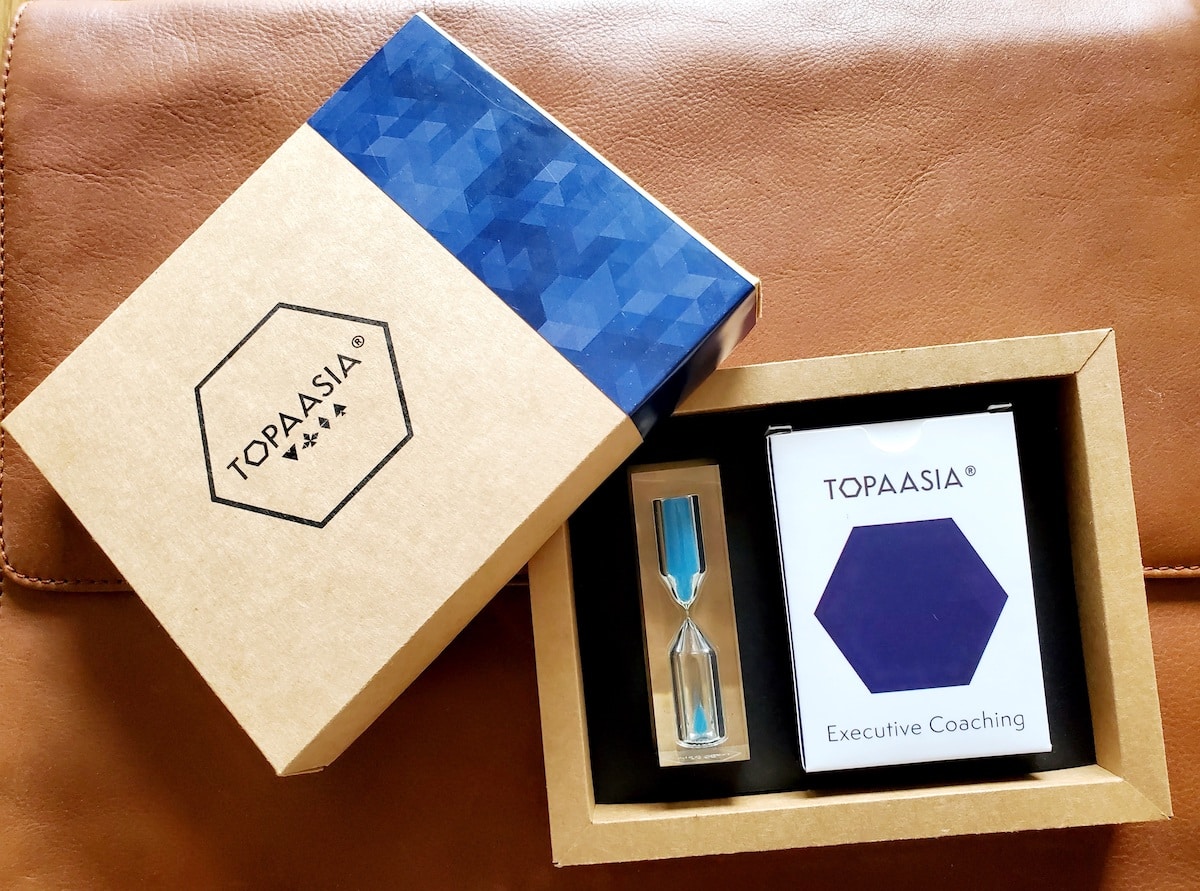
In the realm of executive coaching and team development, finding effective tools that facilitate meaningful dialogue and encourage collaboration is crucial. One such tool that has been making waves in the coaching community is the Topaasia card game. Mikko Sorvari, an executive coach at the bank OP Group in Finland, has successfully incorporated Topaasia into his leadership team coaching sessions, unlocking new levels of engagement and insightful discussions. In this blog post, we will explore the different scenarios in which Topaasia has been used, its value in facilitating open dialogue, and the benefits it brings to executive coaching.
Getting Introduced to Topaasia
Mikko Sorvari’s journey with Topaasia began when he participated as a player in a game at his bank. Intrigued by its potential, he started contemplating ways to leverage the game in his executive coaching sessions. This led to the exploration and experimentation of various scenarios to unlock the game’s full potential. During this exploration, Mikko and Topaasia made in co-operation a Executive Coaching game to accommodate Topaasia’s game catalog of over 40 games.

Scenarios from individual coaching to large leadership teams
Mikko has used Topaasia with groups ranging from as small as four people to larger teams of 20 to 25 individuals. He employs two main approaches: the group discussion method and the individual discussion method.
In the group discussion approach, participants are dealt five cards, sparking conversations about the most important topics. Through dialogue and consensus-building, the group selects the card that resonates most with their collective vision.
The one-on-one discussion approach involves participants quietly reflecting on three cards, selecting one that holds personal significance, and then advocating for its importance in relation to the topic at hand.
Regardless of the approach, the game encourages open dialogue and helps participants articulate thoughts and ideas that they may have otherwise hesitated to express.

Positive Participant Feedback
The feedback Mikko has received from Topaasia participants has been overwhelmingly positive. In fact, the success of the game led to its adoption across multiple teams within one bank, highlighting its value in fostering constructive dialogue and collaborative decision-making. Participants appreciate the opportunity to discuss topics close to their hearts and feel safer opening up about issues that they may have otherwise avoided in a group setting.
As an executive coach, Mikko encourages participants to take ownership of the conclusions and action items derived from the Topaasia sessions. By empowering them to drive the process and assume responsibility for implementing the agreed-upon actions, the game helps foster a sense of accountability and ownership among the participants.

The Value of Topaasia
In Mikko’s view, Topaasia card games bring immense value to leadership team coaching sessions. It offers different perspectives and helps participants view problems and challenges from multiple angles. The game provides a platform for individuals to share their passions and ideas, even on topics they may have initially been hesitant to discuss.
Through the game, participants can tap into their personal convictions and advocate for what they believe is most important, fostering more authentic and impactful dialogue.
For the game to be most effective, a foundation of trust and psychological safety must exist within the team. Mikko emphasizes the importance of spending ample time establishing this foundation before introducing the game. Mikko has also found out that dedicating wall space for visualizing and organizing the post-it notes that represent the group’s insights and conclusions further enhances the effectiveness of the game.
Additionally, Topaasia is particularly beneficial for teams that have been working together for a while and are looking to enhance their self-organization and embrace a more agile approach.
Throughout his experiences with Topaasia, Mikko has observed common themes that emerge during the game, such as the need to let go of old practices, the importance of unlearning, and the significance of building trust. One of the most rewarding aspects for Mikko is when participants express their appreciation for the game and request additional sessions, highlighting the game’s ability to foster positive team dynamics and facilitate transformative conversations.

Conclusion
Incorporating the Topaasia physical card game into leadership team coaching sessions can unlock new levels of engagement and meaningful dialogue. Mikko Sorvari’s experiences demonstrate the game’s effectiveness in generating diverse perspectives, encouraging open conversations, and fostering psychological safety among participants. By utilizing Topaasia, executive coaches and team leaders can empower their teams to explore different viewpoints, align their visions, and drive positive change within their organizations.
